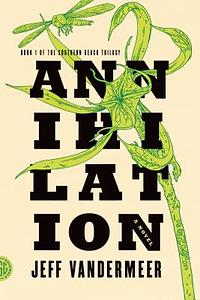Take a photo of a barcode or cover
mysterious
medium-paced
Plot or Character Driven:
A mix
Strong character development:
Yes
Loveable characters:
No
Diverse cast of characters:
No
Flaws of characters a main focus:
Complicated
adventurous
dark
mysterious
reflective
medium-paced
Plot or Character Driven:
A mix
Strong character development:
Yes
Loveable characters:
Complicated
Diverse cast of characters:
Complicated
Flaws of characters a main focus:
Yes
adventurous
dark
mysterious
tense
This was a very interesting book. I was very hooked and could not put it down. It totes a fun line of Lovecraftian with psychological thriller. It does get a bit up its own ass at the end but it was still an excellent read.
adventurous
challenging
dark
mysterious
fast-paced
Plot or Character Driven:
A mix
Strong character development:
No
Loveable characters:
Complicated
Diverse cast of characters:
No
Flaws of characters a main focus:
Complicated
a fast paced and tight mystery with no possible good or clear ending. anyone who calls the ending unsatisfactory missed every flashing sign in the rest of the book telling you not to trust the narrator or the world.
some key quotes that wormed into my brain:
-"I was thinking of having discovered my husband's journal, and how in some ways that discovery was worse than its absence."
-"And I never did look back, for better or worse... There are certain kinds of deaths that one should not be expected to relive, certain kinds of connec-tions so deep that when they are broken you feel the snap of the link inside you."
insane book. fast and short and horrifying <3
some key quotes that wormed into my brain:
-"And I never did look back, for better or worse... There are certain kinds of deaths that one should not be expected to relive, certain kinds of connec-tions so deep that when they are broken you feel the snap of the link inside you."
insane book. fast and short and horrifying <3
challenging
dark
emotional
mysterious
reflective
medium-paced
Plot or Character Driven:
Plot
Strong character development:
No
Loveable characters:
Complicated
Diverse cast of characters:
No
Flaws of characters a main focus:
Complicated
adventurous
challenging
dark
mysterious
slow-paced
Plot or Character Driven:
A mix
Strong character development:
Yes
Loveable characters:
No
Diverse cast of characters:
No
Flaws of characters a main focus:
Yes
adventurous
challenging
mysterious
medium-paced
Plot or Character Driven:
A mix
Strong character development:
Yes
Loveable characters:
No
Diverse cast of characters:
No
Flaws of characters a main focus:
Complicated
This was a strange book, fairly different from most I've read. For the most part, I really enjoyed it, but not without a little bit of struggle (or maybe, challenge). My biggest feeling is that I enjoyed the journey more than the destination. The opening of the book sets the tone perfectly, and the middle of the book explores a number of mysteries in really exciting ways. But the ending, while appropriate and satisfying, isn't <i>quite</i> as fun. Similarly, VanderMeer's prose and tone meant that the <i>act</i> of reading the book, rather than the plot of the book itself, was stronger. It's comparable to [book:Orbital|123136728] in that the experience of reading is more rewarding than the product of reading, if that makes any sense.
The book follows a small expedition sent into the mysterious Area X, a strange wilderness with strange and scientific mysteries aplenty. The expedition's biologist - our narrator - provides a somewhat unreliable perspective on the strange structures, creatures, and behaviors which emerge from Area X, and her version of events grows just as strange as the area itself. I can't speak highly enough about the <i>feeling</i> of this story and the process the biologist goes on. One of my all time favorite things is environmental storytelling, especially in video games. Many of my favorite games like<i>Skyrim</i>, <i>Fallout</i>, and <i>Halo</i> include sections where you explore an area, dungeon, facility, etc. and try to piece together what happened there, and why. It's a narrative format that itches a primal part of my brain - that feeling is part of why I love history, and part of my latest interest in architectural history. As the narrator explores the landscape and the odd locations within, I felt the same sense of driving curiosity and wonder that the best environmental storytelling brings out in me. If you know of other books with this style or plot segments, please recommend them to me! VanderMeer's writing excels here, and my copy had an introduction which effectively praised his approach: Specific descriptions allow readers to feel (mostly) rooted despite the strange, indescribable setting.
One of the other features which I enjoyed but didn't fully appreciate until I read the Introduction on my edition (I chose to read it after the book, because I correctly worried it may include light spoilers) was the restructuring of the natural hierarchy within the text. As the intro notes, humans are used to being the top of the food chain, the apex predator, above the natural world which all other organisms battle to survive within. In Area X (and frankly, when we consider the broader ecosystem and the threat of climate change), the characters are faced with organisms, ideas, creatures, and beings about which we have no understanding and from which we have no protection. The average horror movie can create something more powerful than humans by making it bigger, scarier, and toothier (until we defeat it in the third act). But the organisms here are instead unlike anything we've seen before. They stretch and break the ability of language and propel us into an entirely different, unrelatable place. Put simply, it's very scary, very cool, and very fresh. Almost an ecological cosmic horror, but even that feels a little limited. It's best summarized from a quote near the end of the book: "What do you do when your five sense aren't enough?"
All of this being said, the huge swings taken to achieve the two major successes listed above also creates some challenges for me as a reader. Though the book is often supposed to be disorienting, uneasy, and outwitting, I sometimes found it too much so. I initially began the book as an audiobook but found myself unable to keep up with the narrative, especially as time, space, and perspective began to stretch and bend. As mentioned above, VanderMeer's specificity in description alleviates this problem somewhat, but things still feel fuzzy. I switched to an ebook copy and even still had to do a fair bit of re-reading certain paragraphs and pages to keep up. It's a sacrifice made for a much greater reward, but a challenge to the book nonetheless.
Overall, a really fresh, scary, meditative book that supercharged my love for environmental storytelling and stories of exploration. I don't really have anything to compare it to, but I'm looking forward to reading the other books in the series. I would recommend this to people who enjoy the more abstract portions of the <i>Fallout</i> games, ecological science fiction, unreliable narrators, or more challenging science fiction. I think there's a chance Carter enjoys this and I'd be really curious to hear what Ted thinks. I think Abby is going to try it out and I can't wait to hear about their thoughts as well. Once we've both read it, we're going to try out the movie.
The book follows a small expedition sent into the mysterious Area X, a strange wilderness with strange and scientific mysteries aplenty. The expedition's biologist - our narrator - provides a somewhat unreliable perspective on the strange structures, creatures, and behaviors which emerge from Area X, and her version of events grows just as strange as the area itself. I can't speak highly enough about the <i>feeling</i> of this story and the process the biologist goes on. One of my all time favorite things is environmental storytelling, especially in video games. Many of my favorite games like<i>Skyrim</i>, <i>Fallout</i>, and <i>Halo</i> include sections where you explore an area, dungeon, facility, etc. and try to piece together what happened there, and why. It's a narrative format that itches a primal part of my brain - that feeling is part of why I love history, and part of my latest interest in architectural history. As the narrator explores the landscape and the odd locations within, I felt the same sense of driving curiosity and wonder that the best environmental storytelling brings out in me. If you know of other books with this style or plot segments, please recommend them to me! VanderMeer's writing excels here, and my copy had an introduction which effectively praised his approach: Specific descriptions allow readers to feel (mostly) rooted despite the strange, indescribable setting.
One of the other features which I enjoyed but didn't fully appreciate until I read the Introduction on my edition (I chose to read it after the book, because I correctly worried it may include light spoilers) was the restructuring of the natural hierarchy within the text. As the intro notes, humans are used to being the top of the food chain, the apex predator, above the natural world which all other organisms battle to survive within. In Area X (and frankly, when we consider the broader ecosystem and the threat of climate change), the characters are faced with organisms, ideas, creatures, and beings about which we have no understanding and from which we have no protection. The average horror movie can create something more powerful than humans by making it bigger, scarier, and toothier (until we defeat it in the third act). But the organisms here are instead unlike anything we've seen before. They stretch and break the ability of language and propel us into an entirely different, unrelatable place. Put simply, it's very scary, very cool, and very fresh. Almost an ecological cosmic horror, but even that feels a little limited. It's best summarized from a quote near the end of the book: "What do you do when your five sense aren't enough?"
All of this being said, the huge swings taken to achieve the two major successes listed above also creates some challenges for me as a reader. Though the book is often supposed to be disorienting, uneasy, and outwitting, I sometimes found it too much so. I initially began the book as an audiobook but found myself unable to keep up with the narrative, especially as time, space, and perspective began to stretch and bend. As mentioned above, VanderMeer's specificity in description alleviates this problem somewhat, but things still feel fuzzy. I switched to an ebook copy and even still had to do a fair bit of re-reading certain paragraphs and pages to keep up. It's a sacrifice made for a much greater reward, but a challenge to the book nonetheless.
Overall, a really fresh, scary, meditative book that supercharged my love for environmental storytelling and stories of exploration. I don't really have anything to compare it to, but I'm looking forward to reading the other books in the series. I would recommend this to people who enjoy the more abstract portions of the <i>Fallout</i> games, ecological science fiction, unreliable narrators, or more challenging science fiction. I think there's a chance Carter enjoys this and I'd be really curious to hear what Ted thinks. I think Abby is going to try it out and I can't wait to hear about their thoughts as well. Once we've both read it, we're going to try out the movie.
challenging
mysterious
medium-paced
Plot or Character Driven:
A mix
Strong character development:
Yes
Loveable characters:
Complicated
Flaws of characters a main focus:
Complicated







